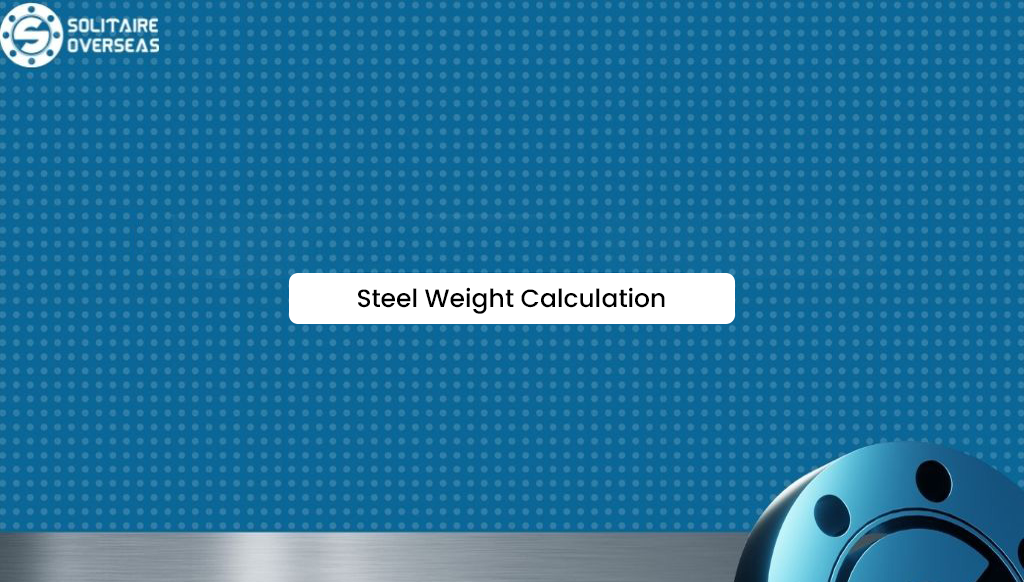
Sheet Metal Gauge Chart When working with sheet metal, you often hear the term “gauge.” For those not familiar with…

Steel Weight Calculation is a crucial process in various industries, including construction, manufacturing, and engineering, where precise measurements are essential. Understanding the weight of steel is vital for ensuring the structural integrity, cost estimation, and material management of a project.
The steel weight formula helps in calculating the unit weight of steel, which refers to the weight per unit volume. This is often necessary for ordering the right amount of material, transporting it, and incorporating it into designs accurately.
The unit weight of steel is typically measured in kilograms per cubic meter (kg/m³) or pounds per cubic foot (lb/ft³). Steel has a unit wt of steel of approximately 7850 kg/m³. Knowing this value helps in determining the total weight for different shapes and sizes of steel.
To find the weight of steel, you can use specific formulas based on the shape of the steel component. Here are some common formulas:
For steel bars, the weight of steel bars formula is:

Alternatively, a simplified version often used in practice for round bars is:

This formula assumes the unit weight of steel is constant and incorporates it directly for ease of calculation.
For steel plates, the formula is:
Weight (kg)= Length (m) × Width (m) × Thickness (m) × Unit Weight of Steel (kg/m³)
For steel pipes, you can use:
Weight (kg) = π × (Outer Diameter (m) − Wall Thickness (m)) × Wall Thickness (m) × Length (m) × Unit Weight of Steel (kg/m³)
To make the Steel Weight Calculation process easier, here is a reference table with standard sizes and their corresponding weights.
| Shape | Formula | Example Calculation |
| Round Bars | Weight (kg) – Length (m) Diameter (mm) 162 | For a bar 12m long and 16mm diameter: Weight = 12 – 19.05 kg |
| Plates | Weight (kg) = Length (m) Width (m) Thickness (m) Unit Weight of Steel (kg/m3) | For a plate 2m x 1m x 0.01m: Weight – 2 1 x 0.01 7850 – 157 kg |
| Pipes | Weight (kg) = IT (Outer Diameter (m) – Wall Thickness (m)) Wall Thickness (m) Length (m) Unit Weight of Steel (kg/m3) | For a pipe 3m long 0.1m outer diameter, and 0.01m wall thickness: Weight – = (0.1 – 0.01) 0.01 3 7850 = 66.1 kg |
Understanding Steel Weight Calculation is essential for anyone working with steel in construction or manufacturing. By using the correct steel weight formula and knowing the unit weight of steel, you can ensure that your projects are accurate, cost-effective, and safe. Whether you are calculating the weight of steel bars or the total steel weight for larger components, these formulas and tables provide a reliable reference.
The formula to calculate the weight of a steel bar is W=D2×L162W = \frac{{D^2 \times L}}{162}W=162D2×L, where WWW is the weight in pounds, DDD is the diameter in inches, and LLL is the length in feet.
The formula for weight W=mgW = mgW=mg calculates the force exerted by gravity on an object, where WWW is the weight, mmm is the mass of the object, and ggg is the acceleration due to gravity.
The formula for calculating ideal body weight (IBW) is: Men: IBW (kgs) = 22 × (height in meters)^2. Women: IBW (kgs) = 22 × (height in meters − 10 cm)^2.

Sheet Metal Gauge Chart When working with sheet metal, you often hear the term “gauge.” For those not familiar with…

Weight Formula for Steel In the world of metals, getting the weight of steel right is like hitting the bullseye…

SPFH590 Chemical Composition SPFH590 steels, as defined by the JIS G 3131 standard, are hot-rolled steels widely used across various industries.…



